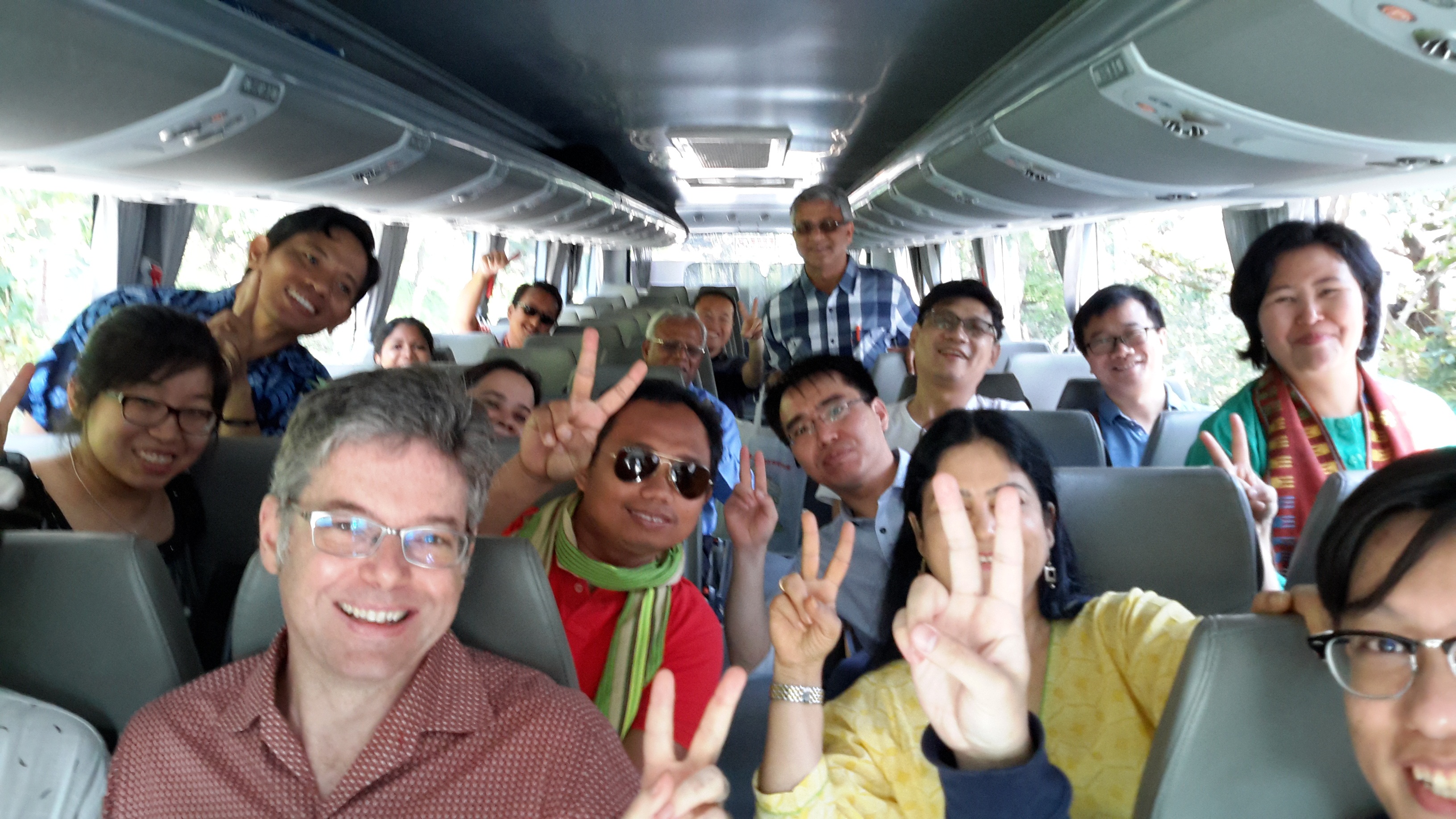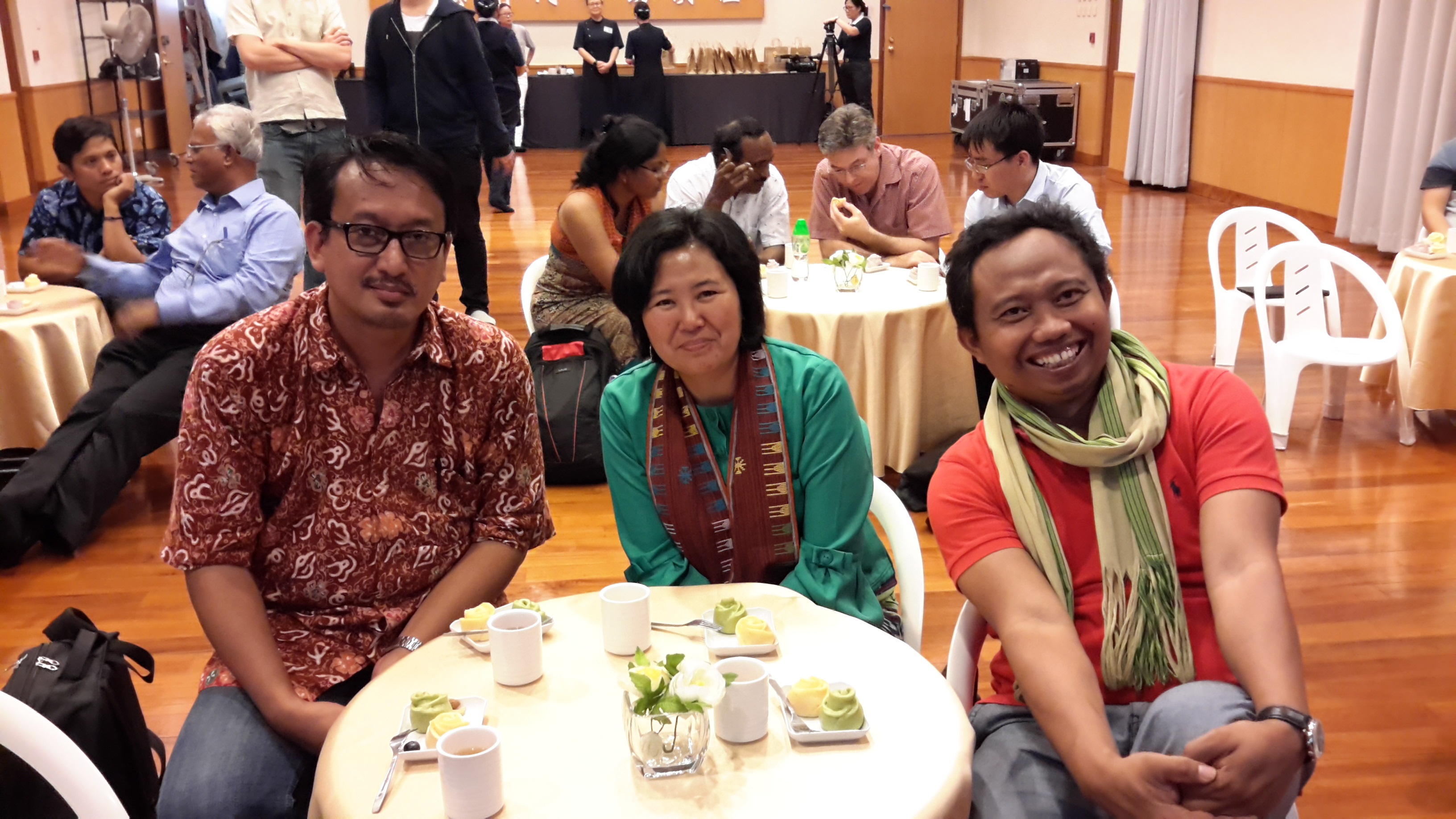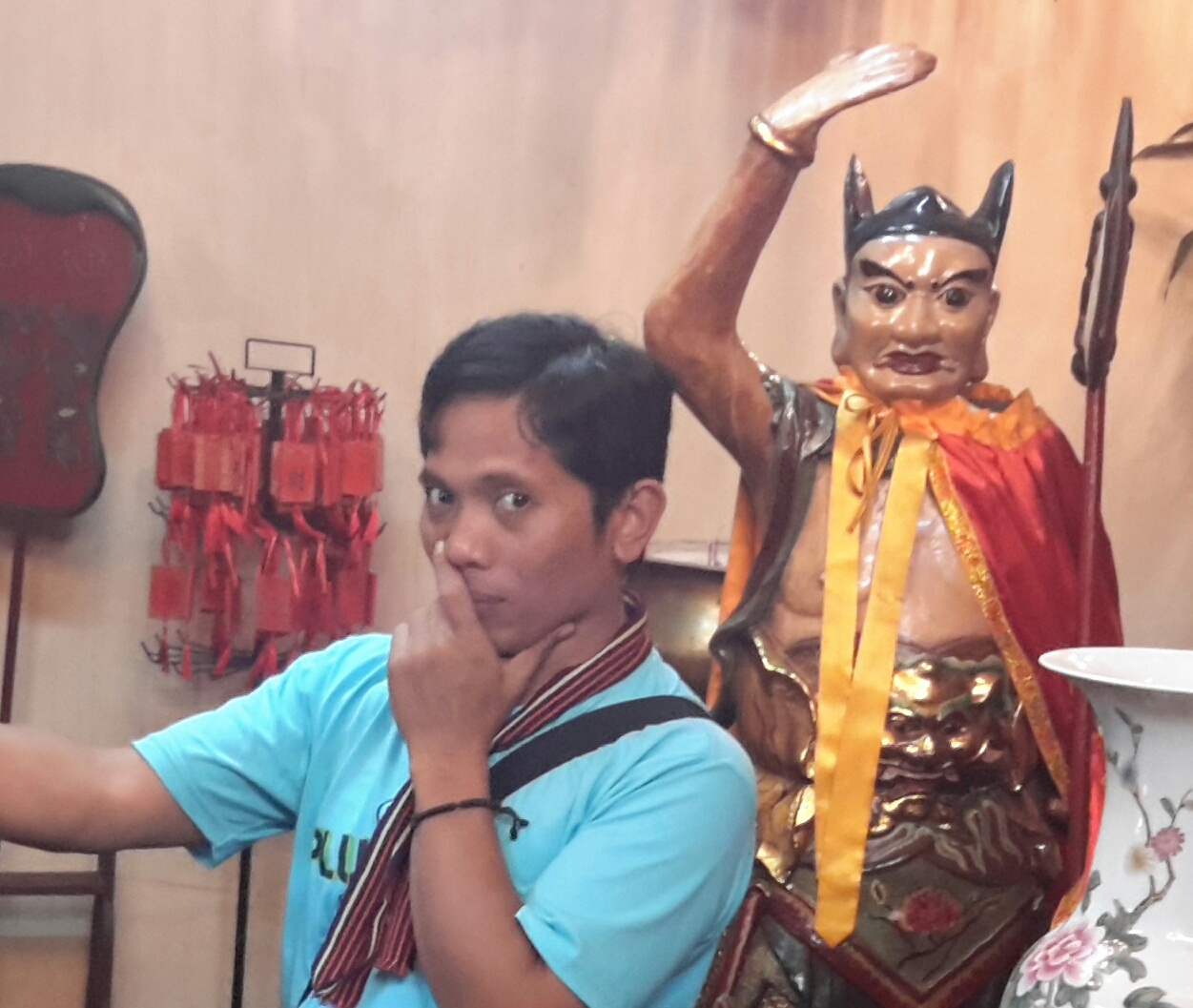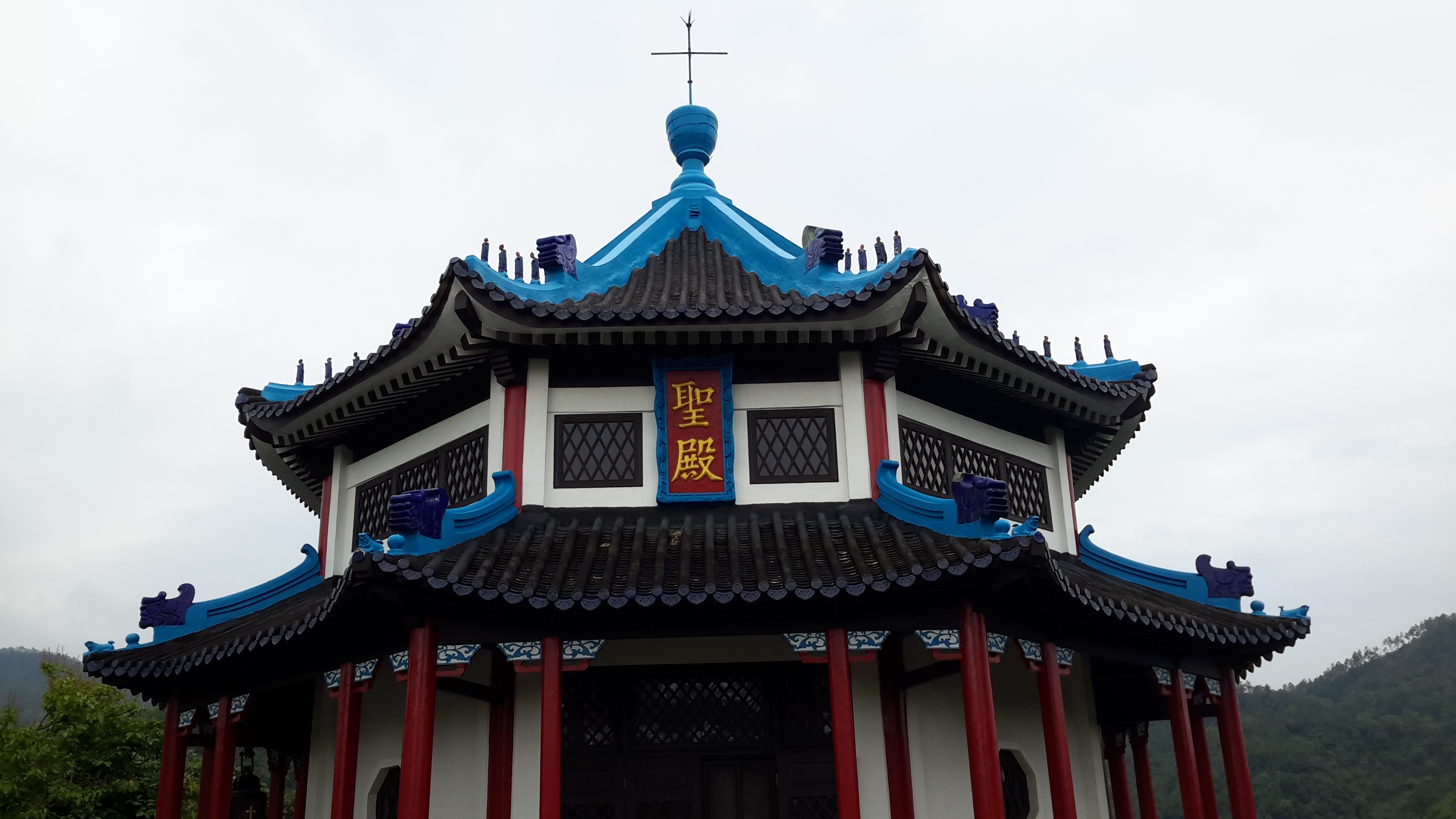Write to Bernie Adeney-Risakotta (or baryogya@gmail.com)
Write to Farsijana Adeney-Risakotta
Individuals: Give to E200303 for Bernie and Farsijana Adeney-Risakotta’s sending and support
Congregations: Give to D506007 for Bernie and Farsijana Adeney-Risakotta’s sending and support
Churches are asked to send donations through your congregation’s normal receiving site (this is usually your presbytery).
Dear Family, Friends and Colleagues,
The whole world is experiencing an upsurge in religious populism and attempts to keep “the Other” at bay. Fear of those who are defined as enemies appears to be a worldwide epidemic. This year, Indonesia, the country with the largest Muslim population in the world, has experienced a disturbing upsurge in fear of those who are different. Muslim radicals express the fears of many Muslims that Islam is under worldwide attack by the West. Fear of the other led to the election defeat of the Chinese Christian governor of Jakarta and his imprisonment for “defaming Islam.” The majority of Indonesian Muslims and non-Muslims feel threatened by the aggressive attacks of the radicals. The long history (and self-image) of Indonesia as a tolerant, open, multi-religious society seems to be under serious threat.
As Presbyterian mission co-workers, Farsijana and I are called to be agents of justice, reconciliation and peace. We cannot control the circulation of fear and hatred throughout the world. However, in a world of violence and suffering, we are committed to be witnesses to the Good News. God loves all human beings and is committed to their salvation. Fortunately, we are not alone. We are partners with Muslims and Christians in Indonesia who are equally committed to reconciliation and peace between different religious communities. As we write, it is the beginning of Ramadan, the month of fasting for Muslims. The Minister of Religion of the Republic of Indonesia issued a fatwa to the Muslim community to use the month of fasting as a time of introspection, to repent of fear and suspicion and to resolve to make Islam a blessing to the whole world, Muslims and non-Muslims alike. I wish I could make a similar fatwa for Christians to make the Church a blessing to all!
The world refugee crisis involves oppressed groups from all religions and countries. Fear and anger circulate around the globe. What is happening with Brexit in Europe, the election of Donald Trump in the U.S. and the increase in devastating terrorist attacks and hate crimes in all countries is spreading like a disease. We feel urgency in our call to create dialogue and reconciliation between different communities.
The Indonesian Consortium for Religious Studies (ICRS) enables people from different religious communities and academic disciplines to learn from each other, especially about how their religious practices shape society. ICRS is a consortium of a large national university (UGM), a Muslim university (UIN Suka) and a Christian university (DWCU). Recently, ICRS completed a three-year research project on how different religions influence public policy in Southeast Asia. The project enlisted leading academics from universities in Cambodia, Indonesia, Malaysia, Myanmar, Philippines, Singapore, Thailand, Vietnam and the U.S. to explore how the different dominant religions/ideologies in Southeast Asian communities shape how countries manage relations between majorities and minorities; influence public policies that affect women; and affect how Southeast Asian countries deal with religion in the public sphere, including cyberspace.Most of us knew very little about our neighboring countries, even though we face many of the same challenges. We learned how Buddhist communities are still dealing with deep trauma from their virtual annihilation in Cambodia during the Khmer Rouge period. Indonesians told of the struggle between different visions of Islamic identity. Malaysians expressed the anxieties of minority groups and progressive Muslims in a country that is trying to impose centralized Muslim structures of law. Scholars from Myanmar shared the struggle of Christian and Muslim minorities against the twin challenges of a militarized government and the dominant Buddhist majority. We learned how in the Philippines the Catholic Church has failed to legislate its views of birth control and still struggles to end conflict with Muslims in the South. Singaporeans shared how an authoritarian government imposes a secular, pluralistic ideology while trying to maintain Chinese ethnic dominance. We learned that in Thailand many Muslims are well-integrated into the Theravada Buddhist-dominated society, but political instability and militarism undermine reconciliation, especially with Muslims in the South. We learned of the rapid growth in Vietnam of all religious communities and the struggle of the Communist government to maintain legitimacy in the face of widespread disillusionment.
I just returned from a meeting involving a new three-year project that will create a dialogue among China, India and Indonesia regarding religious pluralism in three of the four largest countries in the world. The future of our world depends on how these four countries deal with religious pluralism. One senior scholar and five junior scholars from China, India and Indonesia have committed to meet for intensive discussion about religious pluralism in these three countries for a week each year for at least three years. This year we focused on China.
Twenty scholars met May 13-21 in Hong Kong. We included Chinese scholars from secular, Confucian, Buddhist, Taoist, Muslim and Bahai backgrounds; Indian scholars from Hindu and Christian backgrounds; and Indonesians from Muslim and Christian backgrounds, including young scholars from the three universities in ICRS. During our first meeting together, we got to know each other as people and scholars. We visited amazing Chinese Buddhist, Taoist, Confucian, Christian, Muslim and Bahai sites. The empathy and intellectual and emotional rapport between the 18 representatives of the three countries was a miracle. Next year we meet again, this time in Chennai, India. We have formed six groups focusing on different topics, each of which will exchange papers with each other and then with the whole group before our next meeting in May 2018. Unlike with stand-alone conferences, we are building a community. We will build on personal relationships and academic interchanges throughout the year.
I am happy to report that my primary priority for this year, finishing my book, Living in a Sacred Cosmos: Islam and Modernity, is in the final stages of completion. It expresses many years of research and reflection. Farsijana’s priority of legally establishing her House of Authentic Sense Foundation and linking it with the DWCU Center for Development and Social Transformation is effectively empowering Muslim and Christian villagers to work together to overcome poverty. We are humbled and honored to represent the PC(USA) in the mission of the Church. Our work depends on the sacrificial support of many people. Thank you for your prayers and support. We invite you to ensure that our work continues by making a donation through the PC(USA). Please join us in praying that the Good News of God’s love will overcome the forces of fear and hatred.
Warm regards,
Bernie and Farsijana (Nona) Adeney-Risakotta
![]() You may freely reuse and distribute this article in its entirety for non-commercial purposes in any medium. Please include author attribution, photography credits, and a link to the original article. This work is licensed under a Creative Commons Attribution-NonCommercial-NoDeratives 4.0 International License.
You may freely reuse and distribute this article in its entirety for non-commercial purposes in any medium. Please include author attribution, photography credits, and a link to the original article. This work is licensed under a Creative Commons Attribution-NonCommercial-NoDeratives 4.0 International License.



